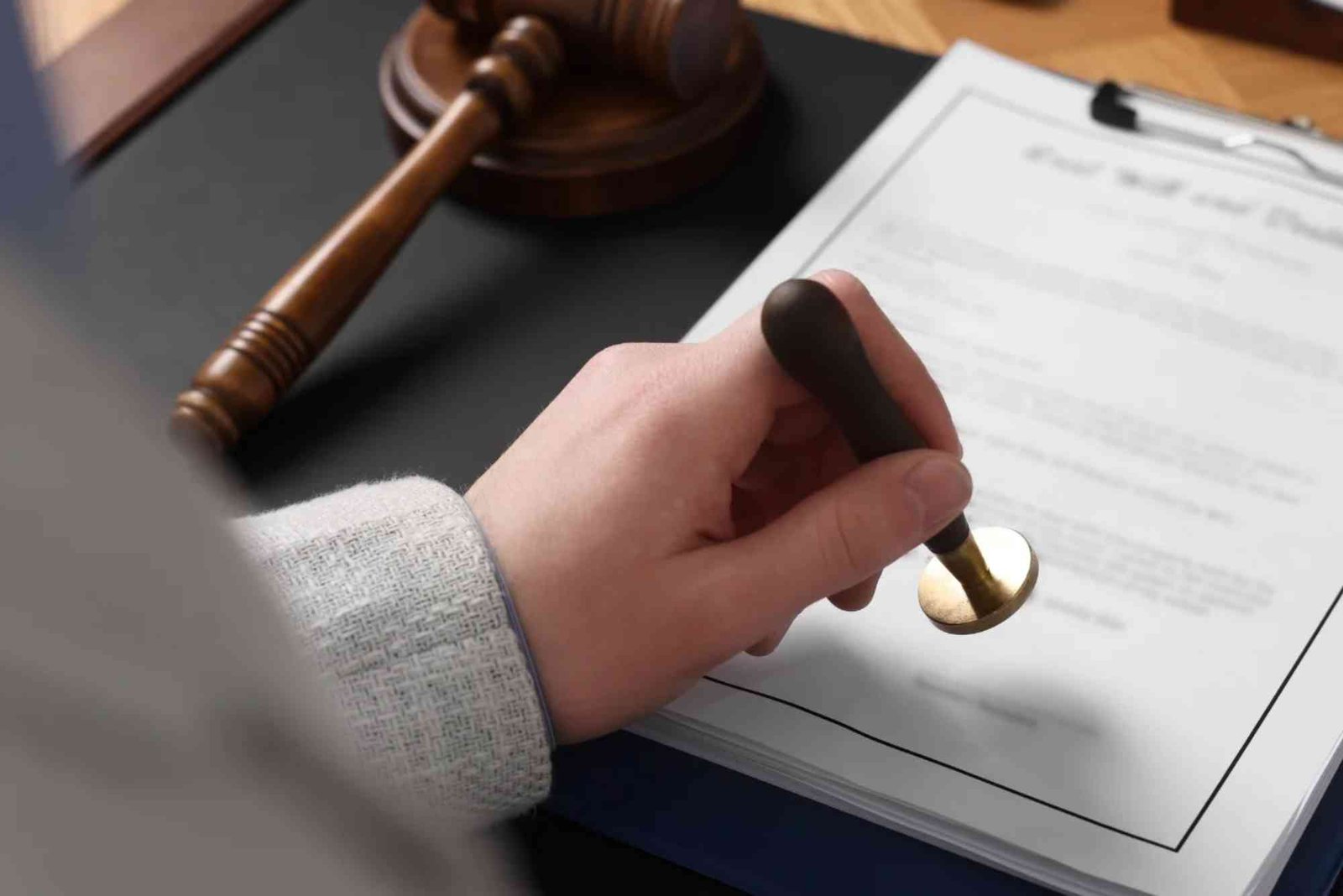Understanding the difference between hiring a lawyer and visiting a notary is essential when handling legal matters in the UAE. Many people mistakenly assume that both roles overlap, but in reality, they serve two entirely different purposes within the legal and administrative structure of the country. Engaging Dubai lawyers offers you full legal representation, advice, and strategic protection, while visiting a notary public Dubai office is primarily about the official certification of documents.
Both roles are important, but they are not interchangeable. A lawyer protects your interests, while a notary validates your documents. Knowing when to approach each one prevents delays, avoids costly mistakes, and ensures that your case or transaction moves forward smoothly.
Why People Confuse Lawyers and Notaries in the UAE
The UAE has a highly structured legal system, but the terminology used by the public often leads to confusion. Many residents believe that a notary is someone who provides legal guidance, reviews contracts, or helps settle disputes. Others assume lawyers only appear in court and do not assist with corporate documents or agreements. In reality, the two professions are distinct and regulated by different authorities.
The misunderstanding usually arises from a lack of clarity about:
- The scope of a lawyer’s authority
- The administrative nature of notarization
- The difference between legal advice and legal verification
- The separate government entities involved in each process
Once you understand the core functions of both roles, it becomes easier to determine which professional you need.
What Lawyers Do: Full Legal Protection, Strategy, and Representation
Lawyers are legal professionals who guide clients through disputes, complex transactions, court procedures, and risk-management issues. Their work is dynamic, strategic, and tailored to each situation. When you hire a lawyer, you are not only paying for services—you are paying for expertise, representation, and legal protection.
- Legal Consultation and Strategy
Lawyers offer tailored advice based on:
- UAE federal laws
- Dubai-specific regulations
- Court precedents
- Contractual obligations
- Risk assessments
A lawyer helps you understand your legal position, your rights, and what actions you can take.
- Drafting and Reviewing Contracts
Whether it’s a property sale, partnership agreement, settlement, commercial contract, or employment arrangement, lawyers draft documents to ensure:
- Your rights are protected
- Clauses are enforceable
- Risks are minimized
- Obligations are clearly defined
Unlike a notary, a lawyer can advise whether a contract benefits or harms you.
- Representing Clients in Court
A notary cannot appear in court, but lawyers can represent you in:
- Civil cases
- Commercial disputes
- Real estate claims
- Employment disputes
- Debt recovery
- Personal status cases
- Appeals and cassation matters
Court representation is one of the main reasons individuals and companies rely on lawyers.
- Filing Legal Notices
Before initiating disputes, lawyers prepare and send formal legal notices that demand compliance or settlement.
- Negotiating Settlements
Skilled lawyers save clients time, cost, and stress by resolving disputes through negotiation, mediation, or structured settlement agreements.
- Handling Government and Regulatory Matters
Lawyers can interact on your behalf with bodies such as:
- Dubai Land Department (DLD)
- RERA
- Notary departments
- Police stations
- Economic departments
- Free zone authorities
This helps streamline processes and ensures nothing is overlooked.
What Notaries Do: Authentication, Attestation, and Validation
A notary has a very different function. They do not offer legal advice or negotiate on your behalf. Their sole purpose is to legally validate documents, confirm your identity, and witness signatures.
- Authenticating Documents
A notary certifies documents so they are legally recognized. This includes:
- Power of Attorney (POA)
- Affidavits
- Contracts
- Corporate resolutions
- Declarations
- Witness statements
The notary ensures the document is genuine—not whether it is advisable or legally beneficial.
- Verifying Signatures
One of the key duties of a notary is to witness and verify that the person signing the document is the same individual identified in the records.
- Certifying Copies
Notaries can certify that a photocopy matches the original document.
- Attesting Corporate Instruments
Businesses often require notarization for:
- Memorandum of Association (MOA)
- Shareholder resolutions
- Board approvals
- Amendment contracts
Without official notarization, these documents are not enforceable.
- Registering Certain Legal Acts
Some legal acts must be notarized before they become valid under UAE law. Examples include certain POAs, local service agent agreements, and select commercial arrangements.
Key Differences: Lawyers vs. Notaries in Dubai
To fully understand which professional you need, it helps to compare their roles across major categories.
- Legal Advice
- Lawyer: Provides detailed legal advice, strategy, and risk assessment.
- Notary: Cannot offer legal guidance.
If you need interpretation, negotiation, or risk analysis, you must consult a lawyer first.
- Drafting Contracts
- Lawyer: Drafts and reviews legally enforceable contracts tailored to your needs.
- Notary: Only validates or certifies documents; they do not judge fairness or legality.
If you sign a contract without legal review, you risk agreeing to unfavorable terms.
- Court Representation
- Lawyer: Represents you in all court levels and legal disputes.
- Notary: Has no role in court proceedings.
Anyone facing litigation must hire a lawyer—not a notary.
- Document Validation
- Lawyer: Can prepare documents but cannot officially validate them.
- Notary: Provides official government-recognized authentication.
If your document requires an official stamp, you must visit a notary.
- Conflict Resolution
- Lawyer: Negotiates, mediates, and resolves disputes.
- Notary: Does not resolve conflicts.
Many disputes can be settled faster when handled by a lawyer before they escalate.
- Regulatory Requirements
Some government departments require notarized documents, while others require properly drafted legal submissions.
A lawyer ensures you meet both requirements in the correct order.
When Should You Hire a Lawyer Instead of a Notary?
There are situations where only a lawyer can help. These include:
- You’re preparing for a lawsuit
- You received a legal notice
- You’re entering a high-value commercial agreement
- You’re buying or selling property
- You’re negotiating a business partnership
- Someone breached a contract
- You’re involved in a dispute needing representation
- You require legal interpretation of documents
- You need risk assessment before signing
A notary can validate documents, but only a lawyer can protect your interests.
When Should You Visit a Notary Instead of a Lawyer?
Notaries are essential when:
- You need to sign a Power of Attorney
- You need to attest a contract or agreement
- You must notarize a corporate resolution
- You need official certification for government submission
- You require authenticated declarations
- You must validate a document for legal enforcement
Notaries play an administrative role, but their stamp is mandatory for making certain documents legally acceptable.
How Lawyers and Notaries Work Together
In many cases, both professionals play a part in the same process.
For example:
- A lawyer drafts a Power of Attorney
- The client signs it at the notary
- The lawyer uses the notarized POA to represent the client in court
Or:
- A lawyer prepares a shareholder agreement
- The notary validates the signing
- The lawyer ensures compliance and handles regulatory filings
Understanding this collaboration helps clients move through complex procedures with ease.
Why High-Net-Worth Clients Must Understand the Difference
High-net-worth individuals handle:
- Large investments
- High-value property transactions
- Complex corporate structures
- Cross-border agreements
- Sensitive contractual arrangements
Mistakes in documentation or legal strategy can lead to major financial losses, reputational damage, or long-term business complications.
Hiring the right professional at the right stage is essential for:
- Asset protection
- Ensuring enforceable agreements
- Avoiding costly litigation
- Maintaining compliance
A notary validates documents, but only a lawyer protects your interests.
Real-World Examples That Show the Difference
Example 1: Property Sale Dispute
A client enters a property agreement without a lawyer’s review. The notary validates the contract, but later the buyer discovers hidden clauses.
A notary did their part correctly; however, only a lawyer could have prevented the issue.
Example 2: Business Partnership
Partners prepare their own agreement and notarize it. Months later, disputes arise because the contract was poorly drafted.
Again, the notary validated the document, but only a lawyer could have ensured its legal strength.
Example 3: Power of Attorney
A lawyer drafts a strategic POA giving specific rights. The client signs and notarizes it.
Here, both professionals worked together successfully.
Final Thoughts
Understanding the difference between lawyers and notaries in Dubai helps you select the right professional for your needs. A lawyer offers legal advice, representation, strategy, and protection—services that safeguard your rights and prevent disputes. A notary, on the other hand, authenticates and validates documents so they can be legally recognized. Both roles are essential, but they serve completely different functions.
When you need protection, analysis, negotiation, or representation, you must turn to legal experts. When you need a document validated, certified, or officially recorded, the notary is the appropriate authority.




